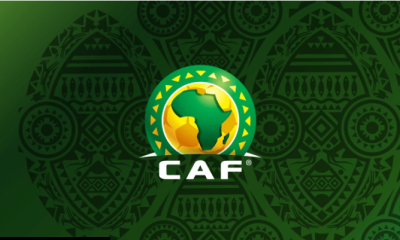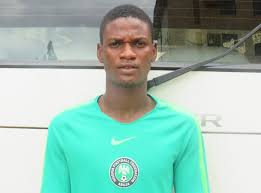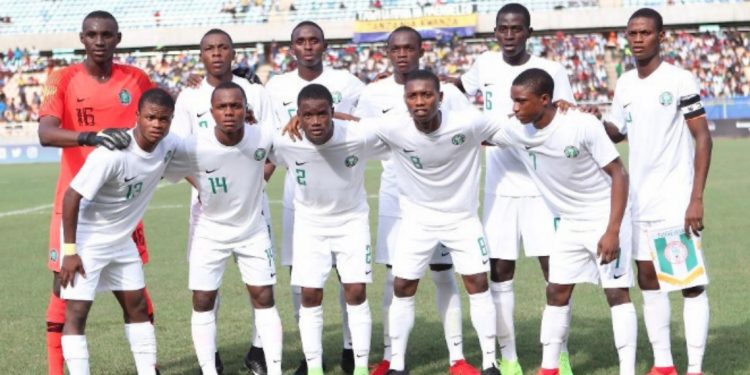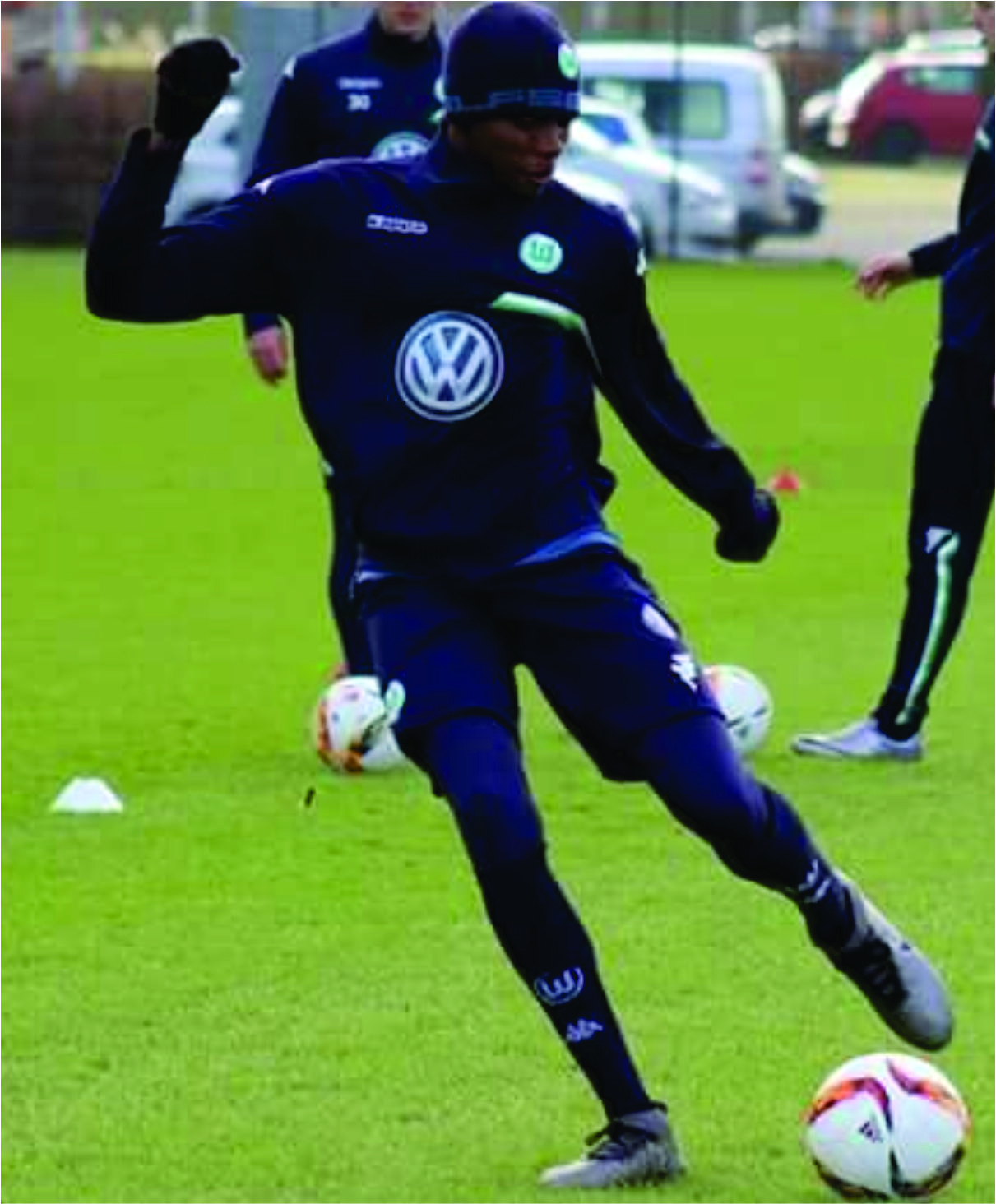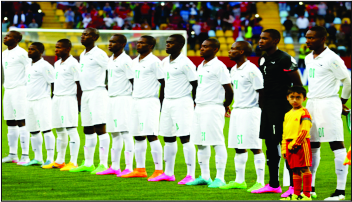Sports
The Golden Eaglets facade
Published
10 years agoon
By
Publisher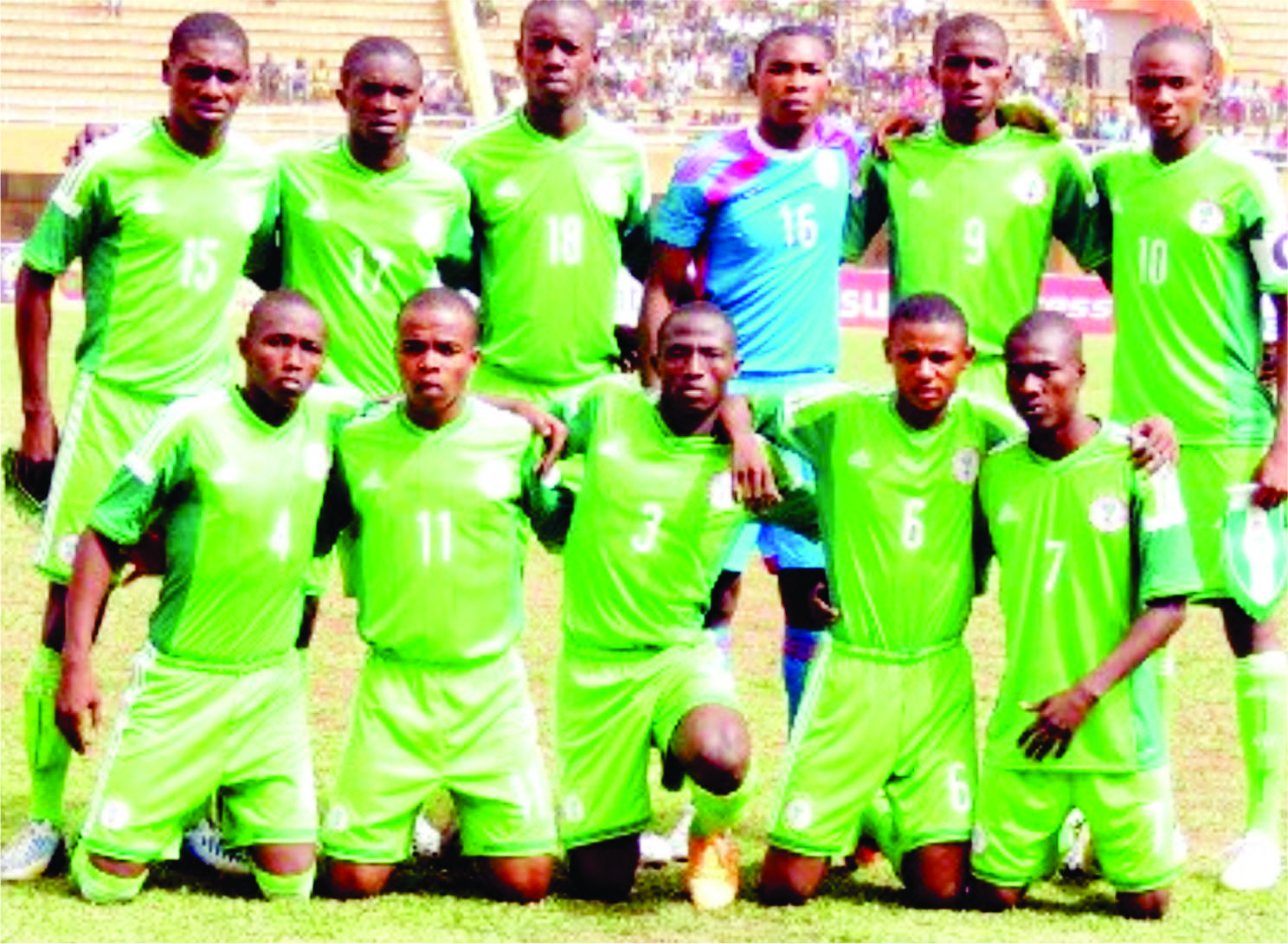
By AKINWUMI OJO
WITH four titles under their belt, the Golden Eaglets are the undisputed kings of the FIFA U-17 competition. The team stunned the football fraternity by beating Germany in the final of the maiden edition of the competition in China 1985to become the first African team to win a global tournament. And were denied a successful defence of the trophy in controversial circumstances two years later in Canada in the final. Since then, the Eaglets have added three titles with the last of these coming at the last edition in UAE. The team have also ended up as runners up thrice.
Football heavyweights Brazil are not so far behind though with three wins and two runners up places they are ahead of Ghana and Mexico with two titles.
And quite frankly, with Nigeria’s impressive record in the competition, expectations that the current squad managed by Emmanuel Amuneke would triumph again in the next edition which kicks this weekend in Chile are sky high.
In Chile, Nigeria fans expect the legendary Amuneke to step into the shoes previously worn by the likes of late Willy Bazuaye, Fanny Amun, late Yemi Tella and Manu Garba who have led the team to triumph in past editions.
Indeed, while his players could not mount the podium at the African qualifiers after finishing fourth, history is on their side. Nigeria’s triumphs at the CAF U-17 over the years had been few and far between yet, they keep surpassing expectations at the global stage. Before conquering the rest of the world at UAE in the last edition, they were beaten in the final of the CAF qualifying tournament by Cote d’Ivoire. And while the African champions fell by the wayside in UAE, the Eaglets triumphed.
So despite arriving in Chile as Africa’s fourth best, they remain the firm favourites for the title.
However, while the Golden Eaglets have been great ambassadors not only to Nigerian football but also to the Africa continent, questions to linger over what has been made of their successes in the cadet competition to the senior team over the years.
Aside the duo of Nduka Ugbade and Jonathan Akpoborie, majority of the first African team that conquered the rest of the world receded into obscurity. Aside streets named after them in the capitals of their various states, there has been practically nothing to remind their countrymen of the record breaking feat.
Phillip Osondu and Dimeji Lawal twisted and feigned as the Eaglets marched to the final of the competition and drew comparisons with the very best in the game. The fooled football fraternity purred in ecstasy and imagined the tremendously gifted lads the lucky Nigerian football would made on the global game with the great the talents unraveling right in front of them. Many even wagered on how many senior World Cup finals, Osondu, who was named the Most Valuable Player of the tournament was gong to lead his country to.
Sadly, two years on however, he looked a spent force and looked every inch like a player at the twilight of his career when turning out for the Flying Eagles at the FIFA U-20 World Cup in Saudi 1989. And that what where his career in the game ended, he never won a single cap for the senior team.
Subsequent successes have only mirrored Nigeria’s struggles to make the budding talents a mainstay of the senior team.
The list is indeed a long one. Femi Opabunmi, Chrisantus Macauley and so many more were mercurial at different editions of the tournament, but while their peers like Tony Kroos, Bojan Kirkick, Esteban Cambiaso and others have gone on to play for some of the best clubs in the world and are great internationals for their countries, the percentage of Nigeria’s coming through the ranks has been spectacularly appalling.
The only exception to this has been the 1993 squad that triumphed in Japan. The team which starred players such as Pascal Karibe Ojigwe, Wilson Oruma, Kanu Nwanko, Celestine Babayaro and Mobil Oparaku is miles ahead of any other on the scale of which is most successful.
These players were integral part of the historical Dream Team that won the gold medal of the football event at Atlanta 1996 Olympics and played at the France 1998 World Cup.
According to Jonathan Akpoborie the true reason why Nigerian players shine at age grade competitions and never fulfill the potentials exhibited at the tournaments are well known.
“It is about the true ages of the players. We take overage players to compete with much younger ones and while our fade off in a little time the truly young ones become ready and take over. The likes of Kanu, Celestine were very young when they played the competition and that was why they were available for the national team subsequently,” he said.
Expectations from the team in Chile are boiling over, but the true success Amuneke can give Nigerians is to build another team that will be similar to the Japan 1993 Class. This may not necessarily be that they mount the podium at the expiration of the competition but producing young class players that will be the pride of the country on the long term.
You may like
Trending

 Health5 days ago
Health5 days agoDeclassified CIA memo explored concealing mind-control drugs in vaccines

 Entertainment6 days ago
Entertainment6 days agoSimi addresses resurfaced 2012 tweets amid online backlash

 Crime5 days ago
Crime5 days agoSenior police officers faces retirement after Disu’s appointment as acting IGP

 Education7 days ago
Education7 days agoPeter Obi urges JAMB to address registration challenges ahead of exams

 Health7 days ago
Health7 days agoNAFDAC issues alert on suspected revalidated SMA Gold infant formula

 Comments and Issues6 days ago
Comments and Issues6 days ago20 Critical Fixes to Save Nigeria’s Democracy from Electoral Fraud

 Football6 days ago
Football6 days agoMartínez ruled out of Everton clash with calf injury

 Latest6 days ago
Latest6 days agoICPC yet to respond to El-Rufai’s bail request as arraignment date looms


